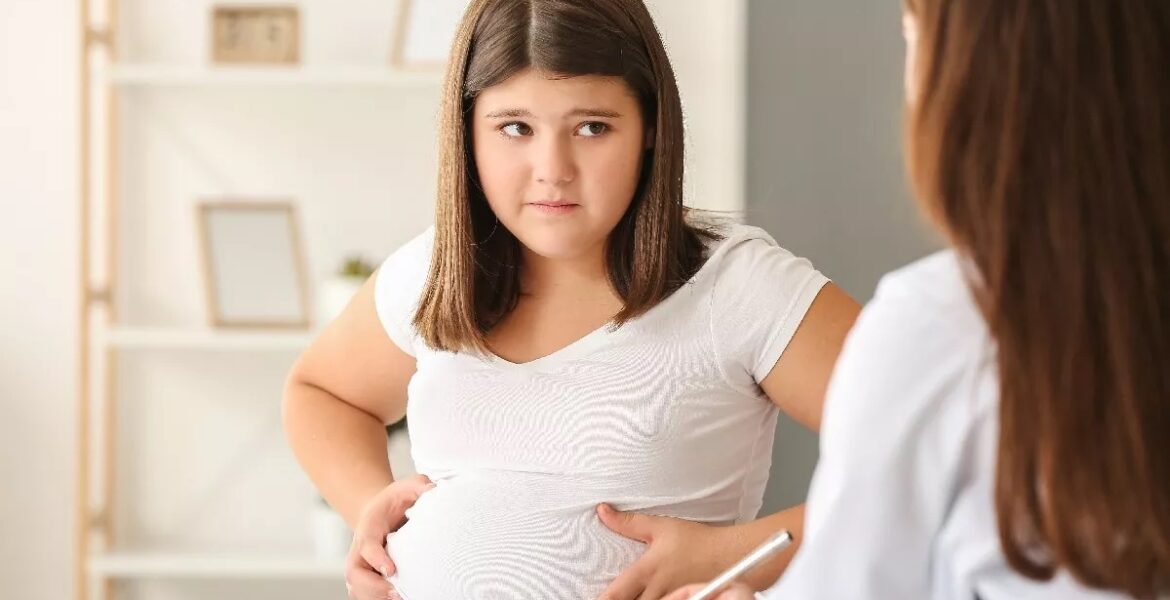The government's Public Health planning focuses on a major issue: childhood obesity. The Ministry of Health is implementing a three-level plan to reduce the burden of small children that threatens their minor and adult lives with many diseases and problems. It is estimated that nearly 4 out of 10 children aged 2-14 are obese.
The National Action to combat childhood obesity in Greece, initiated by the Ministry of Health in collaboration with UNICEF, was presented at a special event in Zappeio on Saturday by Prime Minister Kyriakos Mitsotakis. The goal of the National Action is to reduce the prevalence of obesity in children aged 2 to 14 years from 37.5% (2019) to 24.5% in 2025.
The program includes primary, secondary and tertiary prevention actions and is one of the few comprehensive programs implemented in the European Union.
At the first level, the school will have an important role. Specifically, for children aged 4-17, special programs will be included during school hours, such as learning healthy eating patterns and a cooking competition to highlight the healthiest recipe. In addition, cultivating vegetable gardens by the children themselves will "educate" them about seasonal products and recognise the healthiest ones. Clubs and programs that encourage physical activity are expected to be created—for example, sports basketball teams and walking clubs.
At the same time, schools will be supplied with experiential, interactive material adapted to each class, while interventions will also be made at the level of primary pediatric care professionals. In more detail, for infants and toddlers up to 4 years old, measurements (weight, height) will be recorded on a digital platform that will give parents and guide pediatricians personalised advice. Also, the same measures will be recorded on a digital platform for children aged 4-17, and based on these, personalised interventions will be provided.
Secondary prevention includes the early detection of children experiencing overweight and obesity. Digital applications will refer children and teenagers with problems to nutritionists and pediatricians for free sessions, while the National Action Plan also includes providing psychological support.
Children with already established diseases due to overweight and obesity, such as diabetes and hypertension, will be referred to special pediatric units for treatment. This is tertiary prevention. At the same time, an interdisciplinary team will offer free support for the children and their families. In contrast, free digital portable devices (wearables) will be provided to improve the self-management of established diseases.
“We treat obesity as a health problem, not concerning appearance. We love all children regardless of their appearance, and we do not discriminate, but we know very well that obesity is a great burden. It makes life difficult for children, and if it is not dealt with during childhood, it may make it even more difficult when they grow up", said the Prime Minister during the presentation of the Action Plan.
"The school is a community. A community that discusses, finds common ground, and questions and composes. This is how we want the students to welcome this program. In terms of health for children, elementary and high school students, in this case, the field of nutrition is an opportunity for knowledge not in mandatory conditions but with participation and mutual understanding. In addition, with this program, all poles that play a role in dealing with the challenge of childhood obesity actively participate in family, paediatricians, nutritionists and sports bodies. With advice, knowledge and targeted interventions," said the Deputy Minister of Health, Irini Agapidaki.
READ MORE: Greek teenagers are the most obese in Europe.


